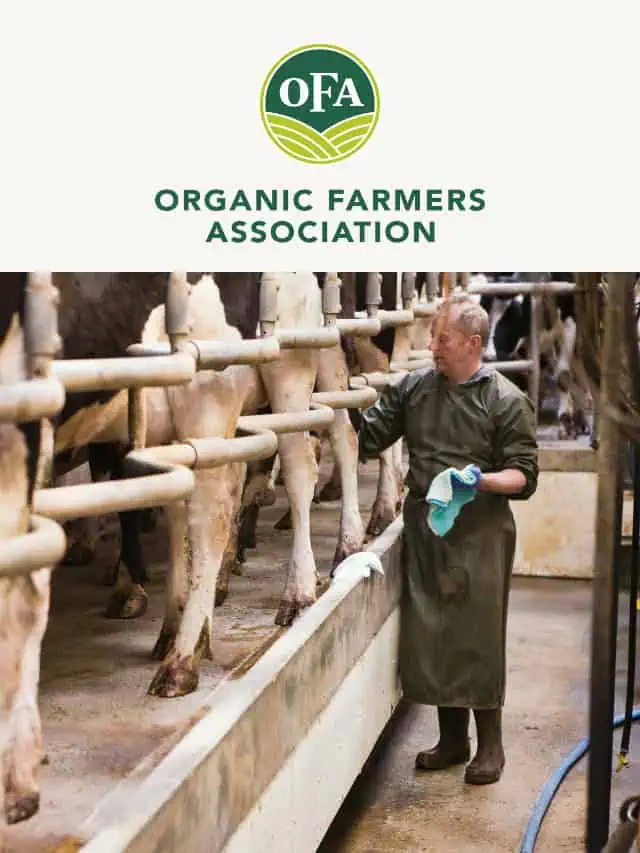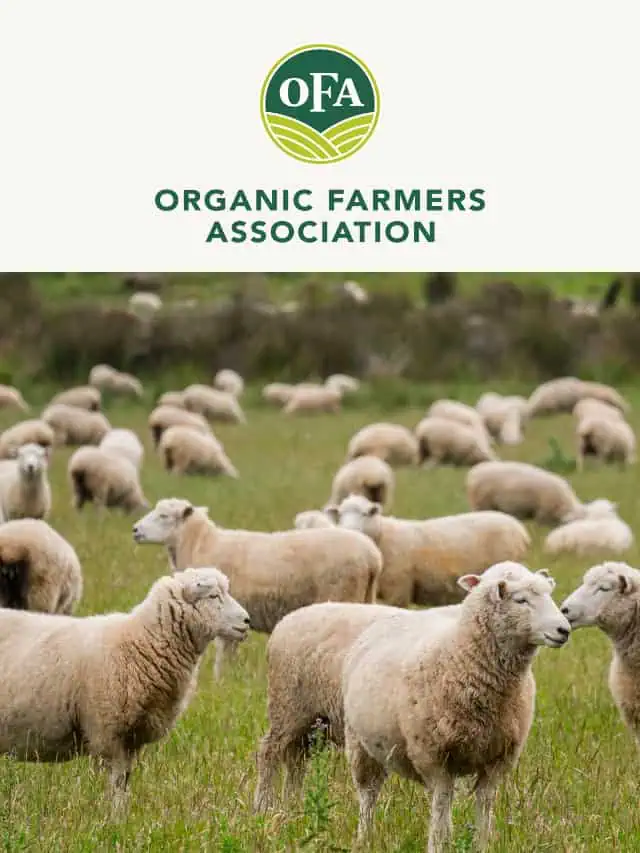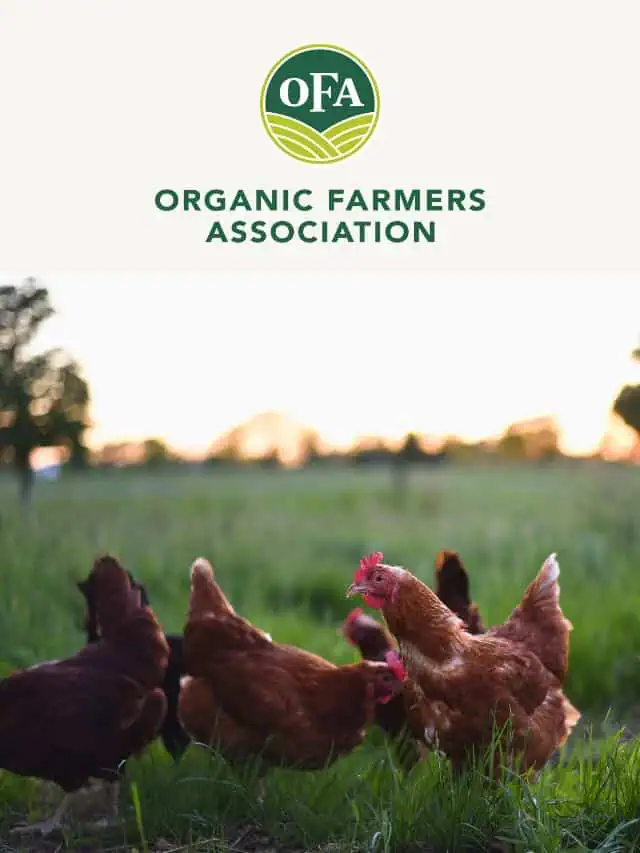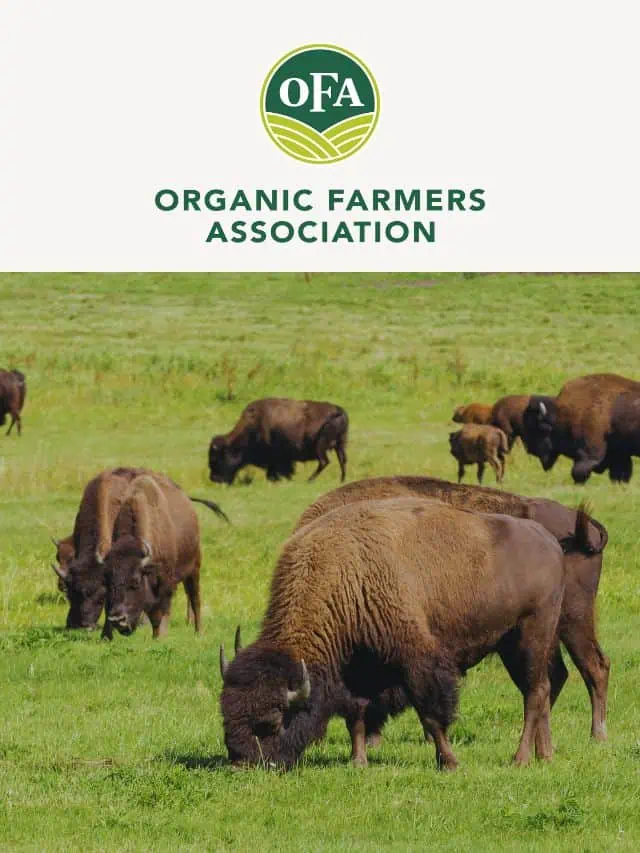Highly Pathogenic Avian Influenza Virus: An Update on H5N1 in Mammals
Highly Pathogenic Avian Influenza Virus: An Update on H5N1 in Mammals
Bird Flu Hits More Than Birds
Since 2022, deadly outbreaks of influenza A(H5), including H5N1, have been reported in mammals—farmed fur animals, seals, sea lions, foxes, bears, raccoons, cats, dogs, cows, goats & more.
H5N1 in dairy cows is transmitted through milk, contact between cows, and milking equipment—and to humans who work closely with cows.
Massive Impact on Dairy
Since early 2024, there have been 977 detections in dairy cows across 17 states.
In California, 70% of herds were affected, and milk production dropped by 9.3%.
One study found losses of $950 per affected cow, totaling over $737,000 per herd during the outbreak period. Impacts on production are long-lasting.
Scientists found the PB2 E627K mutation in TX cow herds—linked to increased mammal-to-mammal transmission
and found in
the first
human
case in
2024.
Organic farmers lack consistent info to guide decisions. If you suspect avian flu symptoms in your animals, call the OFA Farmer HelpLine:
for confidential help.
833-724-3834
Best Management Practices for Controlling Flies in Livestock
Best Management Practices for Controlling Flies in Livestock
Managing flies organically means healthier, less stressed animals
Flies are more than just a nuisance—they can lead to illness, irritation, and reduced production. Managing fly populations helps protect your animals’ health and well-being.
Focus on Animal Health First
Healthy
animals are more resilient
to pests. Feed them a balanced diet appropriate
for their stage of life. Work with a nutritionist if needed, especially if you're growing your own feed.
Keep Housing Clean & Dry
Flies breed in moist, dirty environments. Provide dry bedding and clean gathering areas. Rotate bedding materials, and consider adding lime or diatomaceous earth to reduce fly reproduction.
Understand Your Fly Problem
Identify which types of flies are present.
Learn their breeding habits and life cycles to target your efforts.
A combination of sanitation, pasture management, and deterrents is often most effective.
Use Organic Repellents and Traps
Essential oil-based sprays like peppermint or citronella can deter flies. Use fly tapes, sticky traps, and jars both inside barns and outside. Large fans also help by discouraging flying insects.
Introduce Fly Predators
Consider using parasitic wasps, which feed on fly larvae before they hatch. These can be released around barns and gathering areas. Some farms develop native populations over time.
Manage Pastures Strategically
Break up manure in pastures to help it dry quickly and discourage fly breeding. Use fly traps in paddocks, and rotate animals to non-adjacent areas to keep ahead of fly populations.
Mechanical Solutions That Help
Install walk-through fly traps in high-traffic areas like water stations. Cattle often seek them out for relief. Brushes and grooming stations also help remove manure and mud from animals’ coats.
Poultry Health: HPAI & Organics
POULTRY HEALTH: HPAI & ORGANICS
What is HPAI?
Highly Pathogenic Avian Influenza (HPAI), or bird flu, is a deadly virus spreading rapidly among poultry flocks—both conventional and organic.
Avian influenza is a respiratory disease found in wild and domestic birds and other species. When particularly virulent forms emerge that are highly contagious and lethal to domestic poultry, they are classified as HPAI.
Since 2022, every U.S. state has reported cases of HPAI. In some outbreaks, millions of birds were lost from a single farm.
Over 2.3 million organic egg-laying hens have been affected since Nov 2023—over 10% of the U.S. organic layer population.
Look out for sudden deaths, swelling, discolored combs, coughing, diarrhea, or a drop in egg production. Early detection saves flocks.
Infected flocks must be euthanized. USDA uses various methods based on housing type.
USDA offers indemnity payments to organic producers based on flock value. You can also be reimbursed for handling depopulation.
Organic Rules Still Stand
The USDA National Organic Program (NOP) Organic Livestock and Poultry Standards (OLPS) clarified that certification is not jeopardized when government agencies mandate non-organic euthanasia methods during emergency response
Organic Farmers Association 2025 Farmer Fly-In to Washington, D.C.
OFA 2025 FARMER FLY-IN
Farmer Voices Matter
On March 4, 2025, OFA gathered with farmer and organic organization members to advocate for organic ag policies, a robust Farm Bill, and to bring attention to the impact of funding freezes and tariffs on organic farmers.
OFA Farmer Fly-In
Each year, OFA organizes a Farmer Fly-In to Washington D.C. to take farmers’ priorities directly to policymakers.
OFA farmer members, organization leaders, and staff held meetings with decision makers in D.C.
Members representing 16 states built relationships with and educated policymakers on why organic is important
Meetings to discuss the future of organic and policy priorities with USDA leaders and staff from the Senate & House Ag Committees
Members bring their own stories to meetings with their congressional offices to highlight policy needs. Mark Schlesinger and Sara
Tashker shared why hydroponic growing isn’t organic with their California offices.
OFA’s policy priorities are set each year through an annual policy survey available to all certified organic famers.
OFA’s Executive Director Kate Mendenhall & other farmer members were able to share their Fly-In goals with the Washington Post, including cost-share certification support and unfreezing USDA farmer funds.
You can help advocate for organic farmers too! Write a letter to your members of Congress and tell them to support organic agriculture.
Benefits of Grass-Fed Bison and Beef
The Many Benefits of
Grass-Fed Bison and Beef
Grass-fed livestock produce healthier meat
Raising bison and beef on grasslands promotes healthy ecosystems, animals and people.
Bison and beef raised on grass have healthier fat qualities in their meat, as well as higher antioxidants and nutrients, than ruminants raised on grain in confinement.
RUMINANTS
Ruminant animals evolved over the millennia to roam and consume grass. When they are raised in confinement
on grain, we see an increase in health and
welfare issues for
the concentrated animals, less nutritious food for humans, and a damaged environment.
Grass farming to heal the earth
Well managed grasslands sequester carbon
The movement of animals in an intensive grazing system improves the natural resources for healthy regeneration
The future
& the Past
The wisdom of indigenous people and modern scientific research has improved pasture management, and has led to a resurgence of bison roaming their native lands resulting in healthier food.
Food is Medicine
Food is Medicine
How Organic Farming
& Healthcare Can
Work Together
Food as medicine is the idea that access to nutritious food is essential for health and well-being.
The food is medicine movement integrates programs like produce prescriptions, whole-food diets, & medically tailored meals into the healthcare system as a way to help prevent, manage, and treat human health.
Chronic Illness in the U.S.
Our food now has fewer nutrients than the fresh foods our grandparents ate.
This is attributed to the way our food is grown and the soil is managed now, especially since the agricultural revolution of the 1940’s where chemicals gained an outsized role in farming.
New research is giving evidence that these chemicals in our food and water may be far more insidiously destructive than we first imagined...
“It never occurred to me before then that food was the source of poor health in America”
More substantive research on the impacts of pesticides and organic food on human health
Increased consumer & medical education focused on the source of nutrition (soil health)
Policies & programs that incentivize the integration of medical care with access to organic food
Support for programs like TOPP to assist farmers interested in transitioning to organic farming
Produce Prescription
Medically
Tailored Meals
Insurance- Sponsored CSAs
Nutrition Incentives
Organic Dairy in Schools: Nourishing the Next Generation
Organic Dairy in Schools: Nourishing the Next Generation
By Ella Lucabaugh
Switching to organic dairy in schools creates cascading benefits:
it supports local farmers, reduces environmental impact, and builds resilient food systems.
Yet, this transition faces significant challenges: policy barriers and distribution logistics
Senator Cory Booker’s Safe School Meals Act (SSMA), aims to address food quality in public schools and to protect children from harmful toxins in school meals.
U.S. Department of Agriculture (USDA) Agricultural Marketing Service (AMS) launched the Organic Dairy Product Promotion (ODPP) program.
While federal legislation like the SSMA works to create systemic change, innovative organic dairy farmers are taking matters into their own hands, and are partnering with school food directors to overcome traditional barriers.
Straus Family Creamery: Milk dispensers that can hold up to 5 gallon bags of Straus Family Creamery organic milk
“The USDA requires 8oz of milk to go to each student, and noticeably many of these cartons were going to waste, up to 18 gallons a day from one school,” Straus explained.
Although organics often come at a premium, Straus Creamery was able to offset costs by diverting milk waste using milk dispensers allowing kids to get the amount of milk they actually wanted.
Through the USDA Local Food Promotion Program grant, Rumiano Cheese also has established a program to supply organic dairy products to a targeted 50 school districts across the state. Their organic cheeses appear in students' favorites across K-12 public schools—including pizzas, lasagnas, cheeseburgers, and cheese crisps.
Miller Farms of Vermont supplies 13 schools, and they now work with a distributor.
Lauren Griswold, Wholesale Market Foods Director of NOFA-VT, explained Miller's program's roots and success. “The kids love it, it's delicious, the parents feel good!”
The movement to integrate organic dairy into schools represents more than just a change in milk suppliers— it signals a fundamental shift in how schools approach nutrition, sustainability, and community support.
Pipeline Foods Bankruptcy
THE AFTERMATH OF THE PIPELINE FOODS BANKRUPTCY
By Harriet Behar
Farmers Weren't
Paid...
On July 8, 2021, Pipeline Foods, a grain buyer, processor, and marketer of organic and non-GMO grains declared bankruptcy.
Farmers Were Impacted
They delivered grain but weren't paid & wouldn’t be paid by Pipeline Foods
1
2
OR
They had outstanding delivery contracts with the bankrupt company who wouldn’t be able to pay
Approximately one year after the bankruptcy, some farmers who received payment for delivered grain started to receive “clawback” letters
demanding they send back all payments within 21 days.
Unfortunately, a farmer can’t protect themselves from future clawbacks within their contracts, nor specify that if the grain buyer enters bankruptcy, the contract would be null and void.
Farmers argued the payments were made “in
the ordinary course of
their
business relationship”
and also
stated the payment
received
was not
“preferential payment treatment.”
FARMERS RESPOND
These two phrases are important, and at least one farmer wrote a letter back to the Pipeline Foods using these phrases stating they would not be returning any money. Almost a year went by without a response.
Another farmer hired an attorney to cut the amount demanded in the clawback letters
SETTLEMENTS
IGNORED THE LETTER
One farmer represented himself in bankruptcy court after ignoring the letter, but his case was dismissed
ARGUED CASH PAYMENTS
Cash payments, including those wired to banks, may not be clawedback according to one farmer’s experience
While Pipeline Foods appeared to be a dynamic & growing business, their rapid growth was a warning sign.
To grow the business in their early years, they offered the highest price in the market to attract growers. This also caused them to incur debt that would ultimately be their undoing.
Protect yourself against buyer bankruptcy
Know the rules and protections of both the state where the grain was produced and delivered so you can protect yourself.
Some states have indemnity funds to protect farmers. Review your state’s limits and requirements before you enter into contracts.








